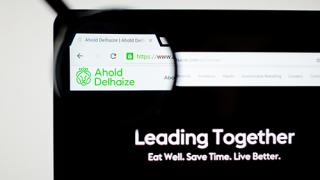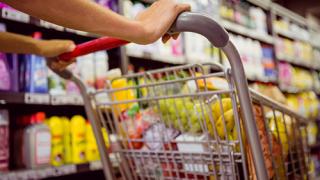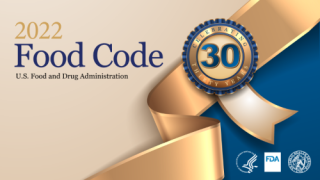News Briefs
AppHarvest Names New COO
Sustainable food company AppHarvest, which operates high-tech indoor farms, has a new COO. The Morehead, Ky.-based company announced that board member Tony Martin is taking on that role to optimize production and revenue across its four-farm network.
Martin brings with him nearly 12 years of experience at Windset Farms, a large controlled environment atmosphere (CEA) producer with operations in the U.S. and Canada. He has also served as an industry consultant and was a board member of the nonprofit Fruit & Vegetable Dispute Resolution Corp. in Canada. He began his career as a professional accountant.
“I expect Tony’s extensive background in CEA and his track record for optimizing the efficiency of core operations and consistently achieving revenue growth will help us accelerate our path to profitability,” said Jonathan Webb, AppHarvest’s founder and CEO.
Martin said he is looking forward to helping lead the company at a key point in its young history. “AppHarvest is at an exciting inflection point transitioning from a construction and development mode to an organization focused on core operational excellence,” he remarked. “I believe AppHarvest has a tremendous opportunity to leverage its world-class CEA network at a time when both changing climate and major grocery retailers are demanding it. We’re working to ramp up production and revenue by ensuring efficient, cost-effective delivery of high-quality produce to major grocers and restaurants.”
AppHarvest’s farms include a 60-acre flagship tomato farm in the Appalachian area of Morehead, Ky. In addition, the company runs a 15-acre indoor farm for salad greens in Berea, Ky., a 30-acre farm for strawberries and cucumbers in Somerset, Ky., and a 60-acre farm in Richmond, Ky., for tomatoes.
Ahold Delhaize Begins 2023 Share Buyback Program
Ahold Delhaize has begun the €1 billion (USD $1.1 billion) share buyback program revealed on Nov. 9, 2022, with the goal of completing the program before the end of 2023.
A balanced approach between funding growth in key channels and returning excess liquidity to shareholders is part of the retail conglomerate’s financial framework in support of its Leading Together strategy. The program aims to reduce Ahold Delhaize’s capital by canceling all or part of the common shares acquired through the program.
[Read more: "Ahold Delhaize Updates CO2 Emissions Reduction Target"]
The program will take place within the limits of relevant laws and regulations, the existing authority granted at Ahold Delhaize’s 2022 annual general meeting of shareholders this past April, and the authority (if granted) by the annual general meeting slated for April 12, 2023.
The share buyback program will roll out in one or several tranches. For each of them, an intermediary will be mandated to execute the purchase of the shares at his or her own discretion during open and closed periods, in compliance with the Market Abuse Regulation and within predefined execution parameters. Shares are bought in the market and accumulated on the treasury share account until cancellation. According to the relevant statutory provisions, cancellation may not occur earlier than two months after a resolution to cancel shares is adopted and publicly revealed. The program is subject to changes in corporate activities, such as, but not limited to, material M&A activity.
Ahold Delhaize will issue regular updates on the progress of the program.
Ahold Delhaize USA, a division of Zaandam, Netherlands-based Ahold Delhaize that operates more than 2,000 stores across 23 states under the Food Lion, Giant Food, The Giant Co., Hannaford, and Stop & Shop brands, as well as e-grocer FreshDirect, is No. 10 on The PG 100, Progressive Grocer’s 2022 list of the top food and consumables retailers in the United States.
Virginia Lowering Grocery Sales Tax Rate
Virginians will see lower grocery bills in the new year thanks to a lower sales tax rate. The state is repealing its 1.5% grocery tax, which covers sales of food for home consumption and certain essential personal hygiene products, beginning Jan. 1.
According to the Virginia Department of Taxation, most staple grocery items and cold, packaged prepared foods qualify for the reduced sales tax rate. Alcoholic beverages, tobacco, prepared hot foods packaged for immediate consumption on or off premises, and seeds and plants used to grow food for home consumption do not qualify for the reduced rate.
[Read more: "Colorado Grocers Can Now Sell Wine"]
A 1% grocery sales tax that goes to local jurisdictions and funds things such as schools, fire and police departments, will remain in place throughout the state.
“I think the layering of sales tax, of grocery taxes, of food taxes on top of property taxes, car taxes and real estate taxes is really a tough thing for Virginians,” said Governor Glenn Youngkin.
"Remember, businesses and people make a decision on 'where I want to live,’" Youngkin continued. "And we are now turning the tide in getting people and businesses to stay in Virginia, but we're going to need some help from the localities as well."
Following Virginia's move, there are 12 states that still impose a grocery sales tax, including Arkansas, Illinois, Missouri, Utah, Alabama, Hawaii, Tennessee, Oklahoma, South Dakota, Idaho, Kansas and Missouri. According to the Center on Budget and Policy Priorities, 10 of those states offer a lower tax rate for groceries than the general sales tax rate or provide a tax credit. Alabama, Mississippi and South Dakota, meanwhile, tax groceries at the full state sales tax rate.
Weis Markets Names Amanda Bauman Director of Marketing
Weis Markets has promoted Amanda Bauman to the position of director of marketing. In her new role, Bauman’s responsibilities include the oversight of the company’s loyalty marketing, data analytics, social media and digital marketing programs. She succeeds Maria Rizzo, who was recently promoted to the position of VP of marketing and advertising.
[Read more: "Weis Markets Adopts Cloud-Enabled Commerce Solution"]
Bauman has worked in several advertising and marketing positions at Weis Markets since 2003. Before her promotion, she was manager of digital marketing, overseeing the development and launch of online shopping, the upgrade of the Weis app, and the enhancement of the grocer’s growing e-coupon program.
Sunbury, Pa.-based Weis Markets operates 197 stores in Pennsylvania, Delaware, Maryland, New Jersey, New York, Virginia and West Virginia. The company is No. 61 on The PG 100, Progressive Grocer’s 2022 list of the top food and consumables retailers in North America. PG also named it one of the Top 10 Regional Operators to Watch in 2022.
FDA Releases Updated Food Code for Retailers
The U.S. Food and Drug Administration (FDA) has issued the 2022 edition of the FDA Food Code that provides guidance to state and local authorities and retailers to help mitigate foodborne illness risks at retail and offers a uniform set of national standards for retail food safety.
For the first time, the 2022 Food Code specifically addresses food donations, which is part of the Biden-Harris Administration’s National Strategy on Hunger, Nutrition and Health. Rolled out in September, the National Strategy provides a road map of actions that the federal government is taking to end hunger and reduce diet-related diseases by 2030, all while reducing disparities.
One-third of all food in the United States goes uneaten. To prevent food loss and waste across the food supply chain, and help ensure safe, good-quality food gets to those who need it most, the 2022 Food Code has clarified that food that is stored, prepared, packaged, displayed and labeled according to Food Code safety provisions can be donated.
Other significant changes to the 2022 Food Code include:
- Adding sesame as a major food allergen to reflect that the Food Allergy Safety, Treatment, Education and Research Act of 2021 established sesame as the ninth major food allergen.
- Informing consumers, in writing, of major food allergens as ingredients in unpackaged food.
- Adding labeling of major food allergens in bulk food that is available for consumer self-dispensing.
- Revising the definition of intact meat, including enhancements to clarify time/temperature cooking requirements.
Those interested can view a full list of the Summary of Changes.
While it is a model code that is not required, the Food Code has been widely adopted to help eliminate the most important food safety hazards in retail and foodservice.
The Biggest Google Searches of 2022
It’s as much of a tradition as a midnight “Auld Lang Syne”: A trends recap of the soon-to-end year.
A look at Google's top searches for 2022 provides a glimpse at what was on consumers’ minds – and leading their fingertips on screens – over the past 12 months. Overall, the early 2022 trend of Wordle topped the list, followed by the term “election results” and the celebrity name Betty White following her passing.
Relevant to the grocery and retail industry, the top terms related to product shortages were, in order, diesel shortage, baby formula shortage, tampon shortage, Adderall shortage, sriracha shortage, food shortage, cream cheese shortage, avocado shortage and lettuce shortage.
Consumers continuing to cook at home following the pandemic and during a year marked by continually spiking food costs also looked to Google to find buzzworthy recipes. Chief among those recipes in 2022 – peaking in November – was sugo, an Italian sauce made with tomatoes, basil, garlic, onion and olive oil.
Other trending dishes for the year according to Google’s data were Cincinnati chili, “Marry Me” chicken, quick pancakes, mango pie, green goddess salad and grinder sandwiches. Celebrity recipes also made the top 10, including a Jennifer Aniston salad and Bella Hadid sandwich, while a spaghetti dish inspired by the streaming show “The Bear” also caused consumers to look for how to make it.
[Read more: "Do Viral TikTok Trends Translate to Grocery Purchases?"]
Social media platform TikTok also released its findings on foods trends of the past year based on its content. Leading the way was cloud bread with 3.4 billion views, followed by baked oats with 1.3 billion views, charcuterie boards with 1.2 billion views, pasta chips with 1.1 billion views and mug cake with one billion views. Throughout the year, grocers may have heard shopper queries about other TikTok-inspired fare that racked up views, like birria tacos, pink sauce and butter boards.






